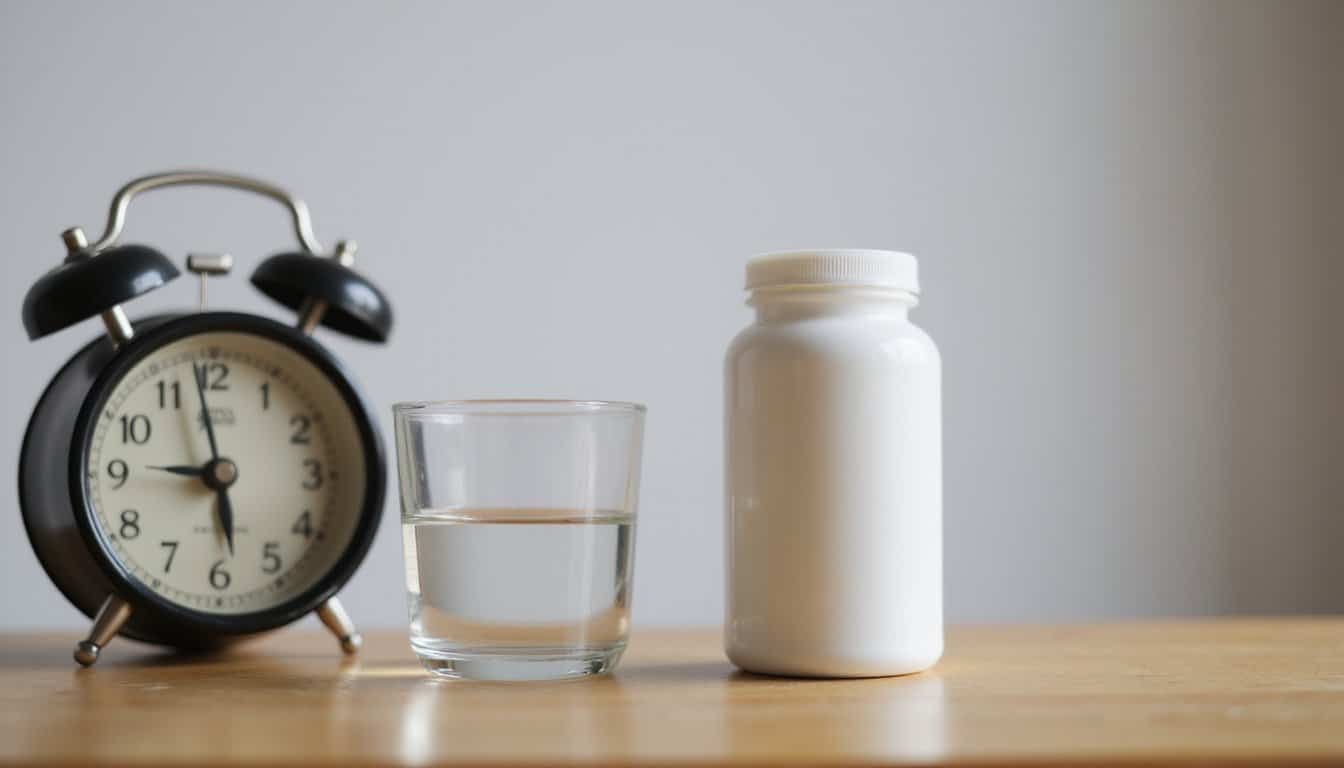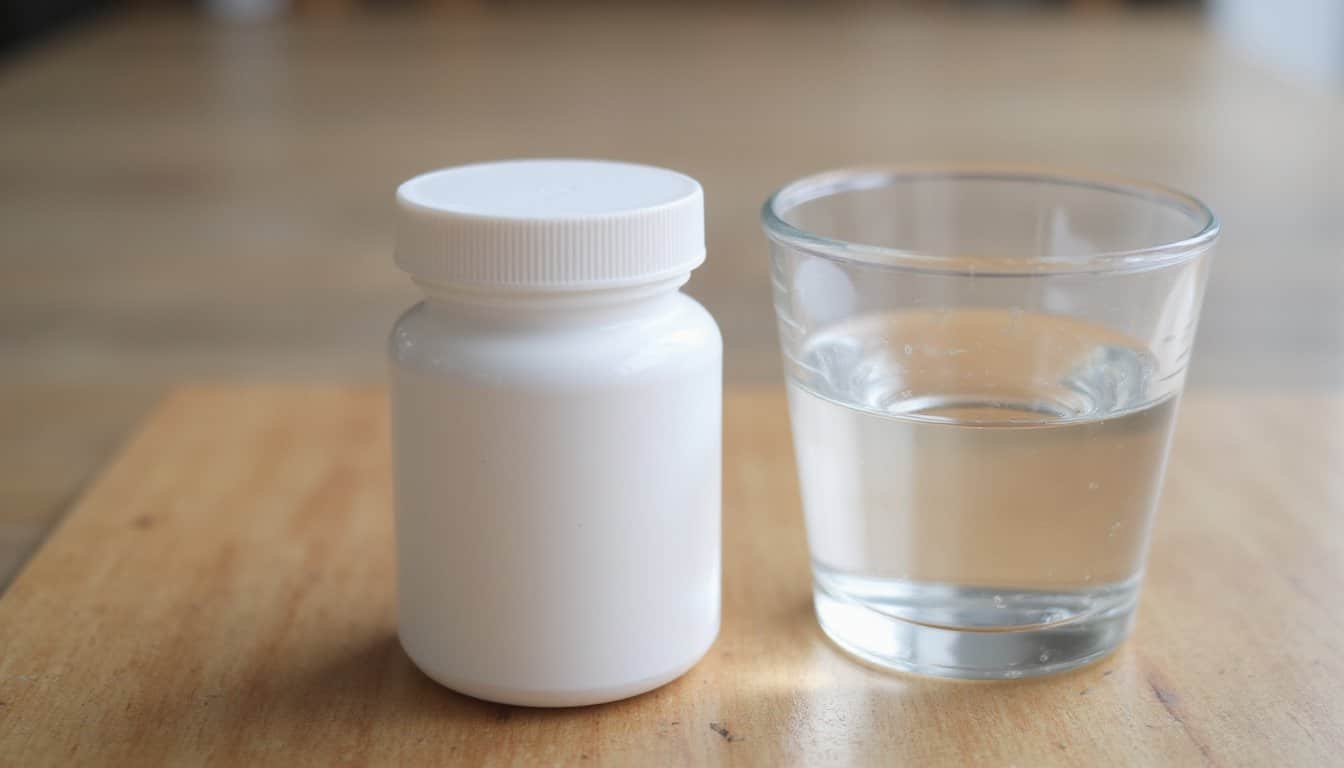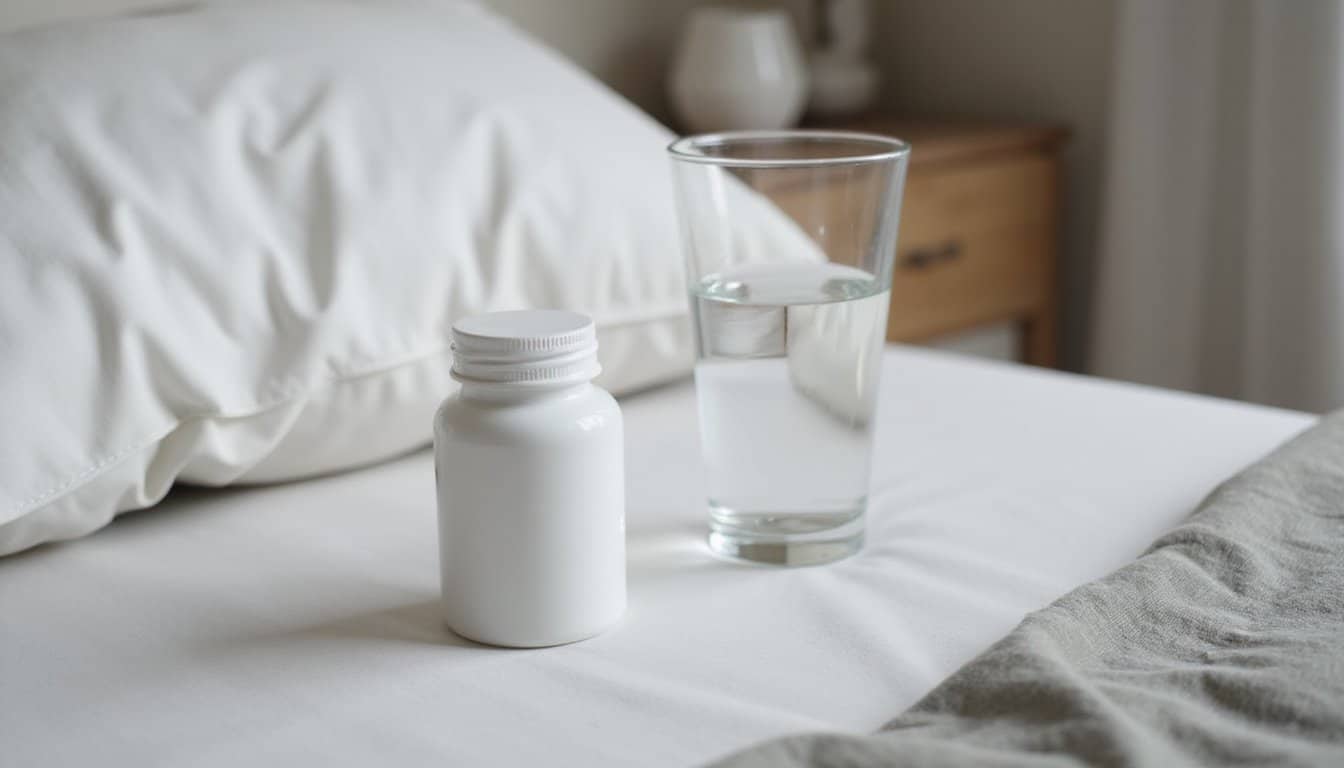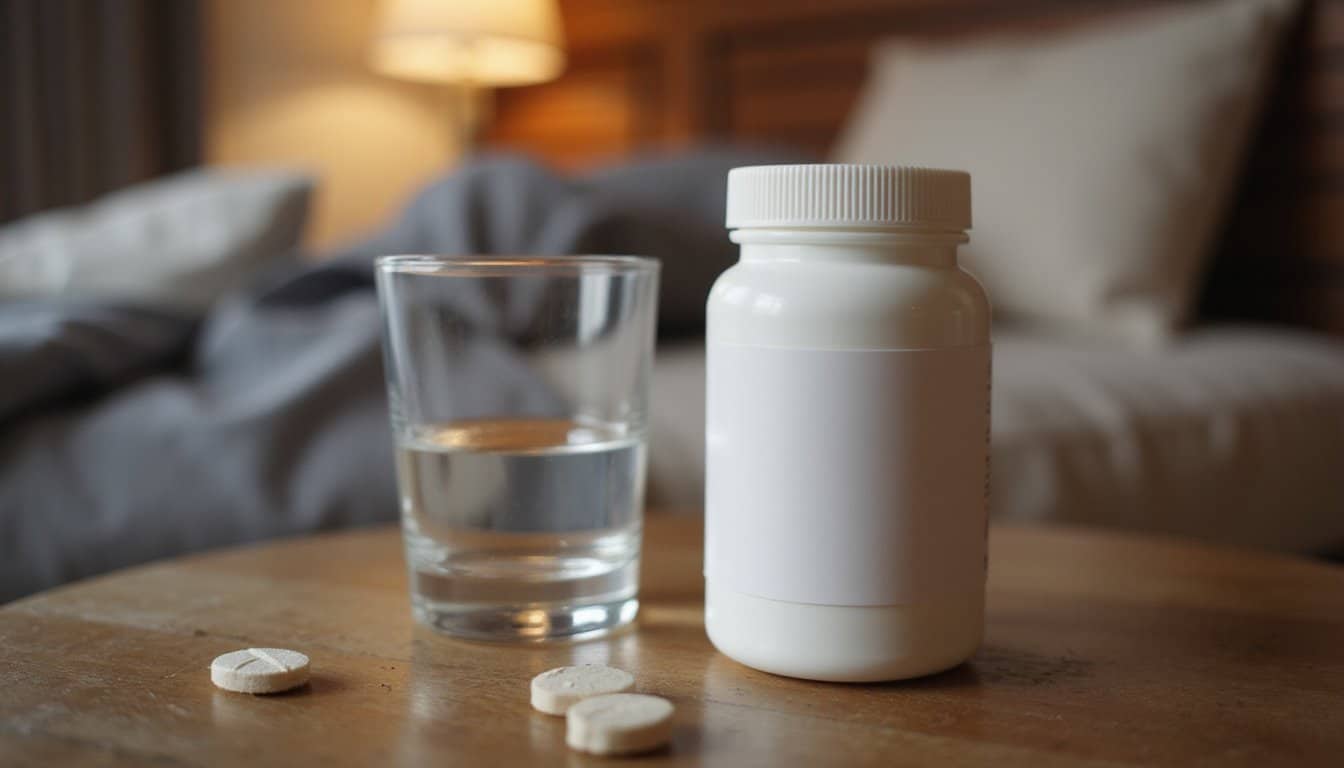IOPs are right for you if your depression, anxiety, or other mental health symptoms are worsening and interfering with daily responsibilities, but you don’t need hospitalization. You’re a good candidate if you can attend 3-5 days weekly for 6-9 hours, have stable housing and transportation, and need more support than weekly therapy provides. Consider IOPs when you’re experiencing moderate-to-severe symptoms while maintaining some independence and safety between sessions, though several key factors will help clarify this decision.
Understanding What Intensive Outpatient Programs Offer
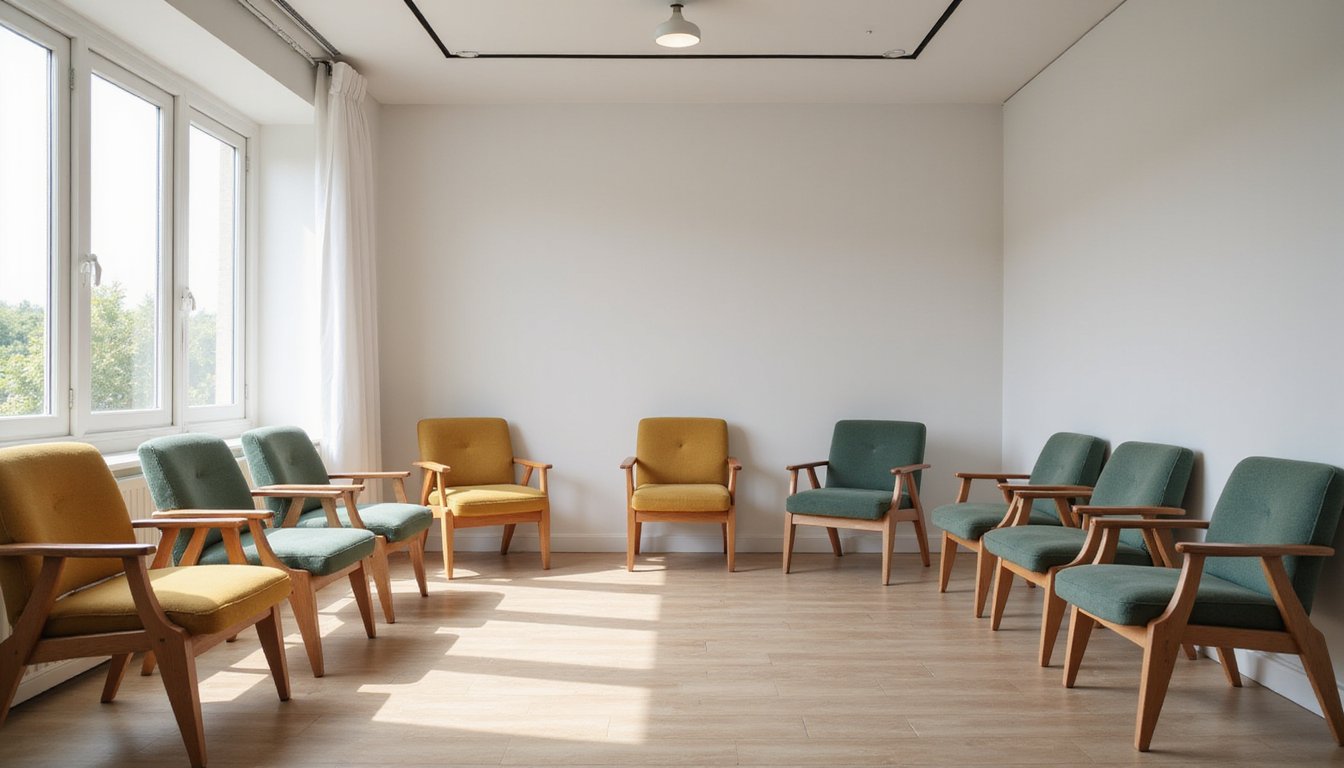
Three key elements define intensive outpatient programs (IOPs): structured care, flexible scheduling, and evidence-based treatment that doesn’t require you to leave your daily life behind. You’ll participate in multiple weekly sessions, typically 6 hours for adolescents and 9 hours for adults, combining individual therapy, group sessions, and family therapy. This cost-effective treatment approach uses proven methods like cognitive behavioral therapy and psychoeducation to address conditions including depression, substance abuse, and PTSD.
What makes IOPs particularly valuable is their flexible scheduling options. You can attend sessions during daytime or evening hours while maintaining work, school, or family commitments. Many programs offer telehealth options, making treatment accessible regardless of transportation or mobility challenges. You’ll practice new coping skills in real-world settings, receiving immediate feedback as you navigate daily life. IOPs serve as an excellent step-down program after completing higher levels of care like inpatient treatment or partial hospitalization. IOPs can also provide increased support for individuals who find that traditional outpatient therapy isn’t sufficient to manage their symptoms effectively. A multidisciplinary team, including psychiatrists, psychologists, therapists, and social workers collaborates to address your mental health challenges through comprehensive, coordinated care.
Recognizing When Your Current Treatment Isn’t Enough
When you’re attending weekly therapy sessions but still experiencing worsening depression, anxiety, or other mental health symptoms, it’s a clear signal that your current level of care may not be sufficient. You might notice that despite your commitment to treatment, your symptoms continue to escalate or interfere with your daily responsibilities at work, school, or home. This pattern often indicates that you need more intensive support than traditional outpatient therapy can provide, even when you’re working with skilled clinicians. Research shows that intensive outpatient programs serve as effective alternatives to inpatient treatment for individuals with mental health and substance use disorders who require more structured care than weekly therapy sessions offer. IOPs offer particular advantages for individuals with daily responsibilities who cannot step away for inpatient treatment, providing flexibility for those with work or other commitments without compromising the level of care. Studies demonstrate that individuals with depression who participated in an IOP experienced significant improvement in their symptoms and overall quality of life.
Persistent Symptom Escalation
Why do some mental health symptoms continue to worsen despite consistent treatment efforts? When you’re experiencing treatment-resistant symptoms, understanding the underlying psychosocial risk factors can help determine if you need more intensive care like IOP programs.
Research shows that certain indicators predict persistent symptom escalation:
- Psychological burden – Higher distress levels strongly correlate with ongoing symptoms, regardless of your medical history
- Demographic vulnerabilities – Factors like gender, education level, and employment status influence symptom persistence
- Functional decline – Worsening social functioning, physical abilities, and general health compound your challenges
- Comorbid conditions – Multiple chronic medical or psychiatric disorders increase symptom continuation odds
If you’re noticing escalating symptoms despite outpatient therapy, significant daily impairment, or multiple risk factors, IOP programs might provide the structured, coordinated approach you need. Studies tracking participants over 6-10 months reveal that psychological burden at baseline consistently predicts ongoing symptoms at follow-up, emphasizing the importance of early intervention. Mental health conditions represent a significant portion of healthcare encounters, with 11.7% of all encounters being mental health-related, comparable to cardiovascular and respiratory system visits. Mental health professionals increasingly recognize that effective treatment requires a transdiagnostic perspective that addresses symptom patterns across different diagnostic categories.
Weekly Therapy Limitations
Beyond identifying escalating symptoms, you might find yourself questioning whether your weekly therapy sessions are actually helping. There’s a lack of research supporting once-weekly sessions as ideal for moderate-to-severe depression or complex conditions like personality disorders. Evidence consistently shows twice-weekly therapy produces greater symptom reduction than weekly sessions, with frequency mattering more than total treatment duration.
You’re not imagining limited progress; weekly therapy often proves insufficient for notable improvement, especially during your first three months of treatment. The early treatment phase typically requires more frequent sessions to establish a strong therapeutic relationship, which facilitates better outcomes. Systemic barriers like insurance limitations and caseload management perpetuate this “weekly default,” often prioritizing logistics over your clinical needs. RCTs find no evidence for longer treatments’ clinical superiority over fewer sessions. Research across diagnostic groups demonstrates that higher initial session frequency correlates with better treatment outcomes regardless of whether you have depression, anxiety, or personality disorders. If you’re experiencing slower recovery, higher dropout urges, or persistent symptoms despite months of weekly sessions, these limitations suggest you might benefit from more intensive treatment options.
Evaluating Your Daily Life and Symptom Impact

When you’re struggling with mental health challenges, it is crucial to honestly assess how your symptoms affect your ability to work, maintain relationships, and handle daily responsibilities. If you’re finding it difficult to keep up with employment, school attendance, or basic self-care tasks like personal hygiene, these disruptions signal that your current level of care may not be sufficient. Taking a close look at both the severity of your symptoms and how they’re impacting your day-to-day functioning will help you determine whether you need more intensive support than traditional outpatient therapy can provide. IOPs typically require participants to attend sessions 3-5 days per week, providing the structured framework necessary for comprehensive mental health recovery. Research shows that clients who participate in intensive programs often experience reduced symptoms, improved daily functioning, and better treatment readiness compared to standard outpatient care alone.
Symptom Severity Assessment
Understanding your symptom severity requires an extensive evaluation that goes beyond simply identifying what you’re experiencing; it involves measuring how these symptoms interfere with your daily life and overall functioning. Multidimensional symptom profiling captures various domains, including depression, anxiety, stress-related symptoms, and physical manifestations like fatigue or pain. Comprehensive evaluation approaches utilize validated tools such as the Hamilton Depression Rating Scale and PHQ-15 to establish clear severity thresholds.
Your assessment will typically include:
- Self-reported questionnaires measuring symptom frequency and intensity on standardized scales
- Clinician-administered evaluations using tools like HAM-A for anxiety symptoms
- Daily functioning assessments examining work, relationships, and self-care capabilities
- Physical symptom evaluation addressing somatic complaints that impact quality of life
Modern clinical settings increasingly employ advanced natural language processing techniques to analyze patient narratives and responses, helping clinicians better understand the full spectrum of symptom presentation. The evaluation process typically involves two independent reviewers who conduct comprehensive screening to ensure accuracy and reduce assessment bias. This thorough approach guarantees accurate treatment matching.
Functioning Level Analysis
Measuring symptom severity provides only part of the picture; your daily functioning reveals how these symptoms actually affect your real-world capabilities and quality of life. A thorough functional skills assessment examines your ability to manage self-care tasks, maintain work or school performance, and sustain meaningful relationships. You’ll need to honestly evaluate whether you’re struggling with basic activities like medication management, household responsibilities, or consistent attendance at obligations.
Your community living evaluation considers how well you navigate social situations, access resources, and participate in activities that matter to you. Can you manage finances, maintain housing, or handle unexpected stressors? If symptoms extensively impair multiple functioning areas while you retain some independence, IOP’s structured support can help you rebuild these essential life skills.
Assessing Your Need for Structured Support vs. Independence
One of the most pivotal decisions you’ll face is determining whether you need the structured environment of an IOP or if you’re ready for more independent treatment options. This assessment requires honest evaluation of your current capabilities and support systems.
Making the right treatment choice demands brutal honesty about your current mental health stability and available support systems.
Consider these key indicators that suggest you’d benefit from structured IOP support:
- Daily functioning challenges – You’re struggling to maintain work, school, or home responsibilities due to mental health symptoms
- Limited support network – Your social network assessment reveals insufficient family or community support for recovery
- Independent living skills gaps – You need assistance developing coping strategies and life management abilities
- Recent instability – You’ve experienced symptom escalation or recent discharge from higher-level care
If these resonate, IOP’s structured framework can bridge the gap between dependence and autonomy while building your independence gradually.
Determining If You Can Safely Manage Between Sessions

While IOP provides structured support during program hours, your ability to maintain stability and safety between sessions is equally crucial for treatment success. Your symptom stability trends over recent weeks or months offer valuable insight into whether IOP matches your current needs. If you’re experiencing mild to moderate symptoms with manageable distress levels, you’ll likely thrive in this setting.
Crisis preparedness plans become essential safety nets when you’re not in active treatment. Consider whether you can effectively use coping strategies independently and access support networks during difficult moments.
| Indicators You Can Manage Between Sessions | Signs You May Need Higher Care |
|---|---|
| Stable symptom patterns with manageable distress | Active suicidal ideation or psychosis |
| Effective use of learned coping skills | Frequent crisis episodes requiring intervention |
| Strong support network and safe living environment | Chaotic home situation or lack of support |
Considering Your Work, School, and Family Commitments
Balancing mental health treatment with your existing responsibilities requires careful consideration of how IOP’s structured flexibility aligns with your daily commitments. Most programs require 9, 15 hours weekly across three to five days, allowing you to maintain employment or school attendance while receiving care.
Consider these key factors when evaluating IOP compatibility:
- Schedule flexibility: Programs offer daytime or evening sessions that can accommodate your work or class schedule
- Family involvement opportunities through therapy components and educational sessions that strengthen your support system
- Transition support for negotiating workplace or school accommodations when needed for treatment attendance
- Community resource access that connects you with local support networks and childcare assistance
This flexibility promotes treatment continuity without major disruption, making IOPs particularly suitable for those unable to pause their responsibilities.
Identifying Red Flags That Rule Out IOP Treatment
IOP programs offer valuable flexibility for many people seeking mental health treatment, but they’re not appropriate for everyone. You shouldn’t consider IOP if you’re experiencing active suicidal thoughts, unmanaged psychosis, or severe withdrawal symptoms requiring medical monitoring. These conditions need immediate inpatient stabilization first.
Your home environment matters considerably too. If you’re facing domestic violence or lack reliable community supports, outpatient treatment becomes unsafe and ineffective. Similarly, if addiction has progressed to the point where you can’t maintain sobriety between sessions or your substance use is escalating despite ongoing therapy, you’ll need residential care.
Family dynamics that involve active abuse or sabotage of recovery also contraindicate IOP. When daily functioning breaks down completely, you can’t work, attend sessions consistently, or manage basic self-care, intensive residential treatment provides necessary structure.
Weighing the Benefits of Peer Support and Group Therapy
When you’re considering IOP treatment, understanding the powerful role of peer support and group therapy can help you make an informed decision about your care. These therapeutic relationships offer unique advantages that individual therapy alone can’t provide.
Research shows significant benefits when you participate in peer and group settings:
- Enhanced engagement – You’re more likely to complete treatment when connected with others sharing similar experiences
- Practical skill development – Group therapy builds communication and emotional regulation skills through behavioral modeling
- Reduced isolation – Peer connections combat loneliness and normalize your mental health struggles
- Stronger relapse prevention – Group participants show lower relapse rates compared to individual-only treatment
Your comfort level with group dynamics and symptom severity should guide whether these formats suit your needs and recovery goals.
Making the Decision: Key Questions to Ask Yourself
After exploring the benefits of peer support and group therapy, you’ll need to honestly evaluate whether IOP treatment aligns with your specific circumstances and recovery needs. Start by examining your commitment level; can you attend sessions 3-5 days weekly for several hours each day? Consider your symptom stability: are you experiencing moderate to severe symptoms that impair daily functioning but don’t require hospitalization? Examine your living situation; do you have stable housing, reliable transportation, and supportive relationships? Evaluate your safety level and ability to manage responsibilities during non-program hours. Ask yourself if you’re genuinely ready to engage actively in group work, accept feedback, and work toward recovery goals. Your honest answers will guide this important treatment decision.
Frequently Asked Questions
How Much Does IOP Treatment Typically Cost Compared to Inpatient Care?
IOP treatment costs vastly less than inpatient care, typically ranging $2,000-$10,000 compared to inpatient’s $15,000-$60,000 for 30-day programs. You’ll save money since IOP doesn’t include housing, meals, or 24/7 supervision. Many facilities offer alternative payment options and sliding scale fees to make treatment more accessible. Your insurance often covers IOP more favorably too, making it a cost-effective choice while you maintain your daily responsibilities.
How Long Do Most People Stay in IOP Programs Before Completing Treatment?
Most people complete IOP programs within 8-12 weeks, which represents the average program duration for standard mental health treatment. Your typical treatment timeline depends on your individual progress, symptom severity, and treatment goals. If you’re making steady progress, you’ll likely finish within this timeframe. However, you might need extended care for 3+ months if you’re managing complex conditions or co-occurring disorders that require additional support.
Will My Insurance Cover IOP Mental Health Treatment Sessions and Services?
Most insurance plans will cover IOP mental health treatment when it’s medically necessary, but coverage varies considerably between providers. You’ll need to check your specific insurance provider policies and understand their treatment authorization requirements, including prior approval processes. Medicare now covers IOP as of 2024, and most Medicaid programs provide coverage. However, you’ll likely face copayments, deductibles, or coinsurance, and staying in-network typically reduces your out-of-pocket costs drastically.
Can I Switch From IOP to Inpatient Care if My Symptoms Worsen?
Yes, you can absolutely switch from IOP to inpatient care if your symptoms worsen. Shifting to inpatient care becomes necessary when you experience escalating psychiatric symptoms like suicidality or psychosis, face safety risks, or struggle with basic self-care. Your treatment team will assess your needs and help facilitate the transfer. This worsening symptom management approach guarantees you receive appropriate care levels when IOP no longer fulfills your clinical needs.
What Happens if I Miss Sessions Due to Work or Family Emergencies?
Most IOP programs understand that work and family emergencies happen. When you miss sessions, you’ll typically have options for rescheduling missed sessions or attending makeup groups. The key is communicating with providers as soon as possible about your absence. Many programs offer recordings, supplementary materials, or individual catch-up sessions to minimize treatment disruption. You’ll need to complete any assigned homework independently and stay engaged with your recovery plan between sessions.


